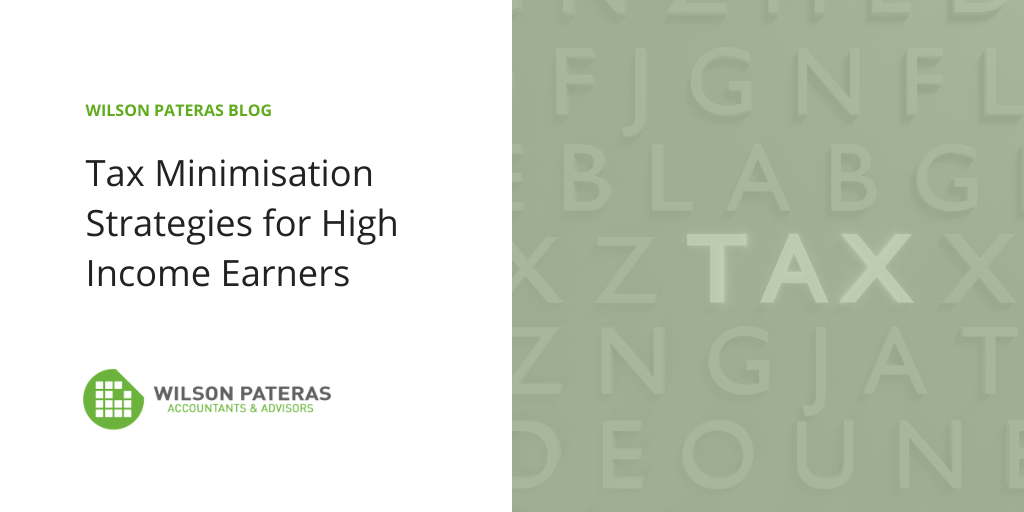
If you are a high-income earner, it is sensible to implement tax minimisation strategies. Effective tax planning with a qualified accountant/tax specialist can help you to do that.
Tax avoidance and evasion on the other hand is illegal and attracts heavy penalties from the Australian Tax Office (ATO). These penalties can range from fines to imprisonment for more serious offences.
Legal tax minimisation strategies
Below are examples of common and legal tax minimisation strategies.
Maximising all of your allowable tax deductions
Tax deductions are allowable expenses that reduce your taxable income (and therefore your tax liability).
One allowable tax deduction that can also be a significant long-term wealth creation strategy is maximising your voluntary superannuation contributions. You can currently claim up to $25,000 as a tax deduction each year (this is known as the concessional contributions cap).
However, it is important to note that you cannot you cannot claim the compulsory superannuation guarantee contributions that your employer makes on your behalf if you are an employee. This amount is also included in your concessional contributions cap.
Another important and tax-deductible expense is income protection insurance. This insurance can help to protect your assets and lifestyle if you are ever unable to work for a period of time. The fact that income protection insurance is also tax deductible is an added bonus.
Maximising your tax offsets
Tax offsets (also called tax rebates) are effectively tax credits that you can use to reduce the amount of tax would otherwise be due to pay. A common offset is the Low Income Tax Offset and the Low and Middle Income Tax Offset. If you can manage your taxable income by fully maximising your tax deductions or deferring income to a future year, you may be eligible for tax offsets ranging up to $1,080 to help reduce your tax liability.
Reducing your capital gains tax (CGT) liability
One way to do this is to strategically time the sale of the asset to take advantage of tax concessions (e.g. there is a 50% CGT discount on assets held for more than 12 months). If you are selling a property, it is important to note that CGT is payable in the year that you sign a contract, not when the settlement occurs.
Buying assets in your partner’s name
For this strategy to be effective, your partner must have a lower marginal tax rate than you do. In this way, the net income from the investment will be taxed at a lower tax rate. If the investment in negatively geared, then the ownership of the asset may be more tax effective in the higher income earners name as they will be able to use the amount of the negative gear to reduce their taxable income and therefore tax liability.
Setting up a discretionary trust to distribute business/investment income
This allows you to distribute the income to trust beneficiaries with lower marginal tax rates, therefore reducing your personal tax liability.
Salary sacrificing into superannuation
Salary sacrificing into super involves forgoing some of your pre-tax salary/wages and putting it into super instead. This is a tax-effective strategy because super contributions are taxed at the concessional rate of 15% in Australia. This rate is lower than the lowest marginal tax rate, therefore you will save tax by doing it.
Negative gearing
Negative gearing is the situation where your tax-deductible expenses associated with an investment property exceed the rental income it generates. This therefore reduces your taxable income and the amount of tax you pay.
Tax planning benefits
Effective tax planning can help you:
- to legally minimise your tax.
- have more money available to build your individual wealth.
- to avoid any penalties for tax evasion.
- maximise the transfer of inter-generational wealth.
How we can help
Our team of award-winning Melbourne accountants at Wilson Pateras can help to plan and implement legal tax minimisation strategies.
We provide tax planning services for both individuals and businesses.
Contact us today to discuss how we can help you and/or your business.





